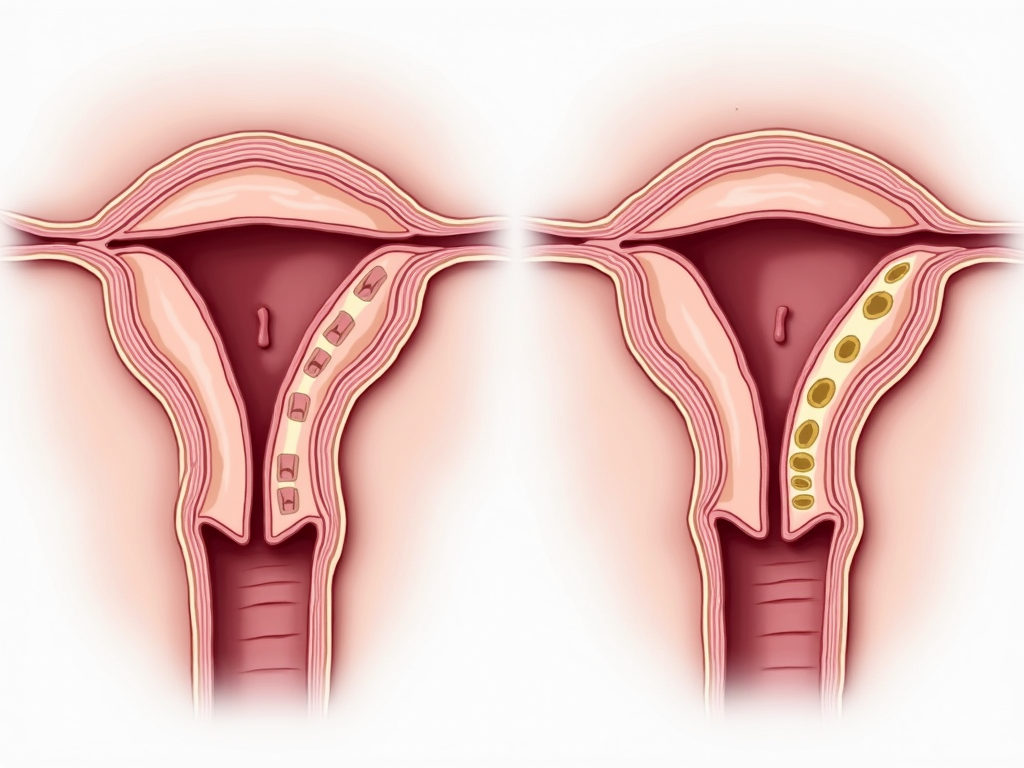Enhance Your Fertility Naturally: A Comprehensive Guide to Overcoming Tubal Infertility
March 17, 2025, 7:52 a.m.
Tubal infertility is a significant barrier to conception for many women, often caused by blockages or damage to the fallopian tubes. These tubes play a crucial role in fertility, as they are the pathway for the egg to travel from the ovary to the uterus and for sperm to reach the egg. When the tubes are compromised, natural conception becomes challenging, if not impossible. While medical interventions such as surgery or in vitro fertilization (IVF) are common treatments, there is growing interest in natural remedies that may support tubal health and overall fertility. This article delves into various natural approaches, lifestyle changes, and personal insights to help you understand and potentially improve your fertility naturally.
Understanding Tubal Infertility
Tubal infertility can stem from several causes:
- Pelvic Inflammatory Disease (PID): Often resulting from sexually transmitted infections, PID can lead to scarring and blockages in the fallopian tubes.
- Endometriosis: This condition, where uterine tissue grows outside the uterus, can cause adhesions that affect the tubes.
- Previous Surgeries: Abdominal or pelvic surgeries, including those for ectopic pregnancies, can result in scar tissue that blocks the tubes.
- Congenital Abnormalities: Some women are born with tubal defects that affect fertility.
Symptoms of tubal infertility may include:
- Pelvic pain
- Abnormal menstrual cycles
- Pain during intercourse
However, many women with tubal issues experience no symptoms at all, making diagnosis challenging without medical testing. Common diagnostic tools include:
- Hysterosalpingography (HSG): An X-ray procedure that uses dye to visualize the fallopian tubes.
- Laparoscopy: A minimally invasive surgery that allows direct visualization of the reproductive organs.
Understanding the root cause of tubal infertility is crucial for determining the most appropriate treatment path, whether medical or natural.

Natural Remedies for Tubal Infertility
While natural remedies should not replace medical advice or treatment, they can be used as complementary approaches to support overall reproductive health. Here are some popular natural methods:
- Herbal Supplements: Certain herbs are traditionally used to support female reproductive health. For example:
- Red Clover: Believed to help with hormonal balance and tubal health.
- Dong Quai: Often used in Traditional Chinese Medicine to improve blood flow to the reproductive organs.
-
Vitex (Chaste Tree Berry): May help regulate menstrual cycles and support progesterone levels. It's essential to consult with a healthcare provider or a qualified herbalist before starting any herbal supplements, as they can interact with medications or have side effects.
-
Acupuncture: This ancient practice involves inserting thin needles into specific points on the body to promote energy flow. Some studies suggest that acupuncture may improve blood flow to the reproductive organs, reduce stress, and enhance fertility.
-
Yoga and Exercise: Gentle physical activities like yoga can be beneficial for fertility. Yoga poses such as the Cobra, Butterfly, and Legs-Up-the-Wall are thought to improve circulation to the pelvic area and reduce stress.
-
Dietary Changes: Nutrition plays a vital role in reproductive health. A diet rich in antioxidants, vitamins, and minerals can support fertility. Key nutrients include:
- Folate: Found in leafy greens, beans, and fortified grains.
- Omega-3 Fatty Acids: Present in fatty fish, flaxseeds, and walnuts.
-
Vitamin D: Obtained from sunlight, fatty fish, and fortified foods. Additionally, reducing intake of processed foods, sugar, and trans fats can help maintain a healthy weight and hormonal balance.
-
Massage Therapy: Fertility massage techniques, such as Mayan abdominal massage, are believed to improve blood flow to the reproductive organs and help break up adhesions.
-
Essential Oils: Some essential oils, like lavender and geranium, are thought to support hormonal balance and reduce stress when used in aromatherapy.
-
Homeopathy: This alternative medicine system uses highly diluted substances to stimulate the body's healing processes. Some women find homeopathic remedies helpful for fertility issues.
It's important to note that the effectiveness of these remedies varies, and scientific evidence may be limited. Always consult with a qualified practitioner before trying new therapies.

Lifestyle Changes
Adopting a healthy lifestyle is fundamental for anyone looking to improve their fertility. Here are some key areas to focus on:
-
Regular Exercise: Engaging in moderate exercise for at least 30 minutes most days can help maintain a healthy weight, reduce stress, and improve circulation. However, excessive exercise can have the opposite effect, so balance is key.
-
Adequate Sleep: Quality sleep is essential for hormonal regulation. Aim for 7-8 hours per night and establish a consistent sleep schedule.
-
Stress Management: Chronic stress can negatively impact fertility by disrupting hormonal balance. Techniques such as meditation, deep breathing exercises, journaling, or spending time in nature can help manage stress levels.
-
Avoiding Harmful Substances: Limiting alcohol and caffeine intake, quitting smoking, and avoiding recreational drugs are crucial steps. These substances can impair fertility and overall health.
-
Environmental Toxins: Minimize exposure to environmental toxins like pesticides, heavy metals, and endocrine disruptors, which can affect fertility. Choose organic produce, use natural cleaning products, and avoid plastics when possible.
-
Weight Management: Maintaining a healthy weight is crucial, as both underweight and overweight conditions can impact fertility. Work with a nutritionist or dietitian to achieve and maintain a healthy BMI.
-
Social Support: Surround yourself with a supportive network of friends, family, or support groups. Sharing your experiences and feelings can alleviate stress and provide emotional strength.

Personal Stories and Insights
To make the content more relatable, let's consider the hypothetical story of Emily, a 35-year-old woman who faced tubal infertility after a bout of PID. After consulting with her doctor, she decided to complement her medical treatment with natural remedies. Emily started a daily routine that included:
- Taking herbal supplements recommended by her naturopath.
- Attending weekly acupuncture sessions.
- Practicing yoga and meditation to manage stress.
- Overhauling her diet to include more whole foods and fewer processed items.
After a year of dedication to these changes, Emily noticed improvements in her overall health and well-being. While she eventually opted for IVF, she believes that her natural approach helped prepare her body for the procedure and contributed to her successful pregnancy. Emily's story underscores the importance of a holistic approach to fertility, combining medical and natural methods.

Conclusion
Enhancing fertility naturally is a journey that requires patience, dedication, and a willingness to explore various approaches. While natural remedies like herbal supplements, acupuncture, yoga, and dietary changes may not directly unblock fallopian tubes, they can support overall reproductive health and potentially improve your chances of conception. It's crucial to work closely with healthcare professionals to ensure that any natural methods you choose are safe and appropriate for your situation. Remember, every fertility journey is unique, and what works for one person may not work for another. Stay informed, stay hopeful, and take proactive steps towards your goal of parenthood.